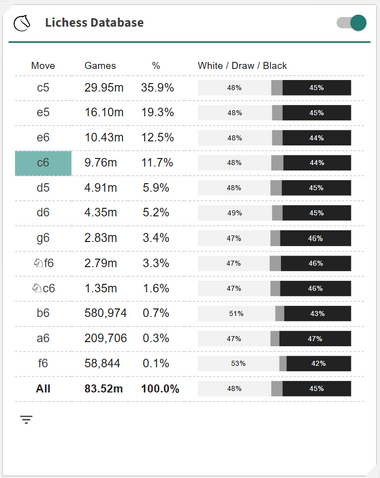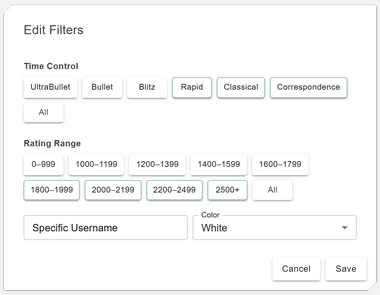Lichess Database
More actions

Available in: Builder, Library, Practice, Tools
The Lichess Database provides detailed opening statistics from millions of online games played by users on Lichess.org. This card includes data from a broad player pool, allowing you to see how openings perform across different ratings and time controls. Within the Repertoire Builder, this makes it ideal for studying both practical and online trends beyond master-level play.
For the current position, this section displays the most common next moves, highlighted in green if they already exist in your opened item, along with the number of games, the percentage of games where each move was played, and the Win–Draw–Loss (WDL) percentages based on all rated games in the Lichess database.
You can click on any move to add it directly to your opened item. This helps you identify popular practical continuations and align your repertoire with the most frequently played moves in real-world online games.
This feature helps you:
- + Explore large-scale opening trends from the entire Lichess player base
- + Identify the most common and successful continuations played online
- + Find practical moves that frequently occur in real games at your chosen level
- + Strengthen your repertoire with openings that reflect current online practice
Filters

The Lichess Database card supports several filters to refine your analysis:
- ◦ Rating: Limit results to games within specific player rating ranges
- ◦ Time Control: Focus on games from particular formats such as blitz, rapid, or classical
- ◦ Player Name: Search for moves and results involving a specific Lichess player
- ◦ Player Colour: Filter to show results for either White or Black only
